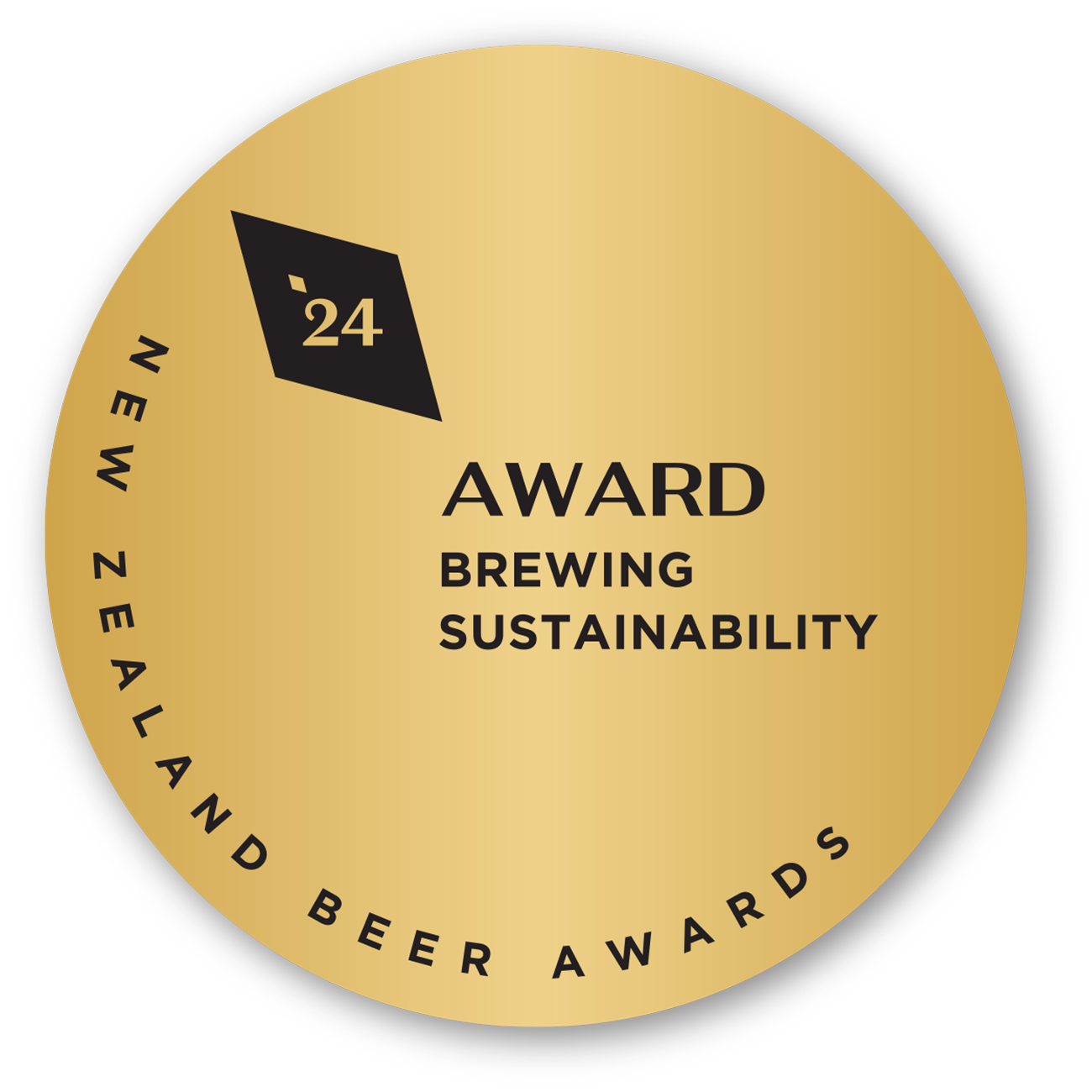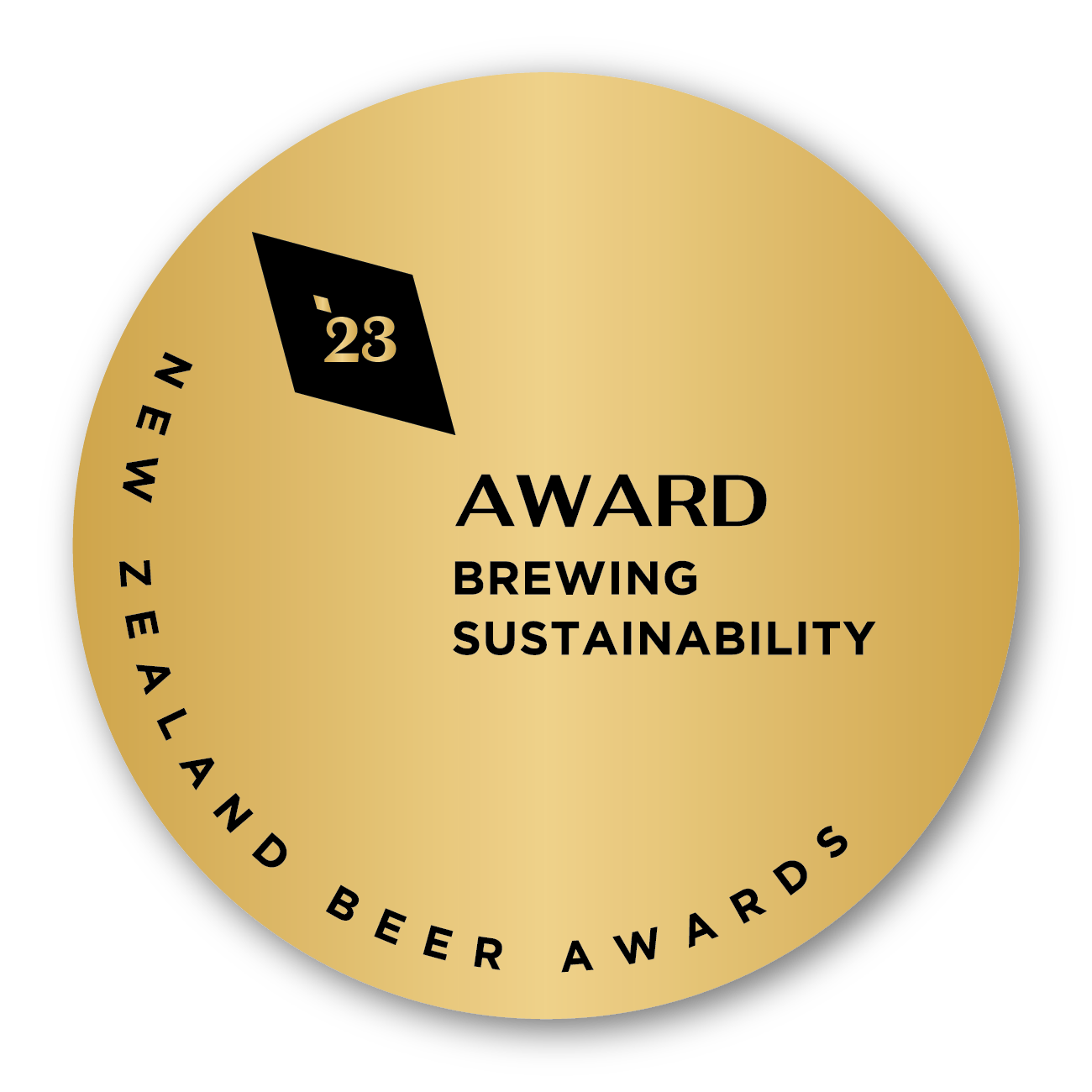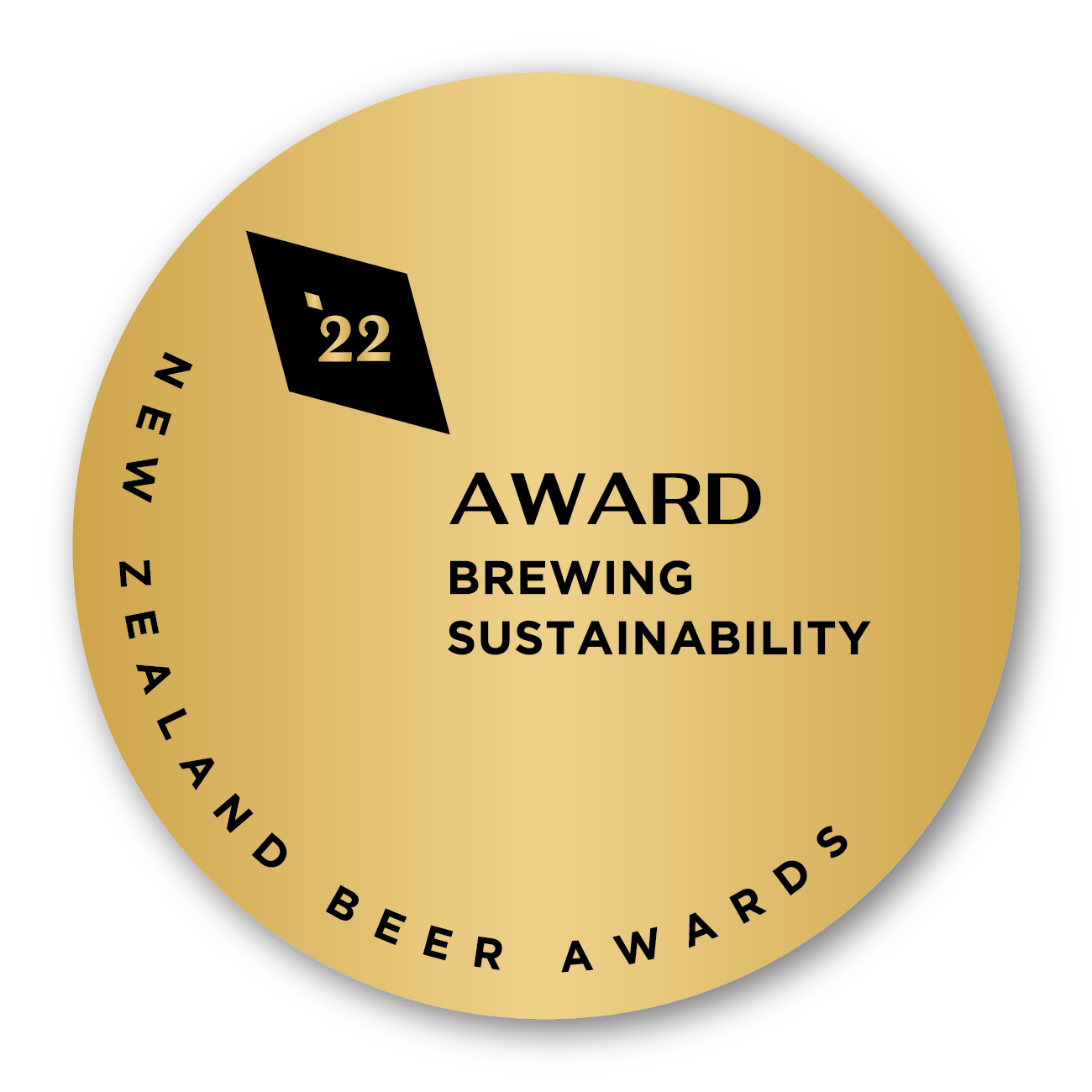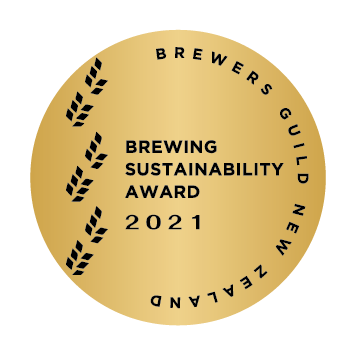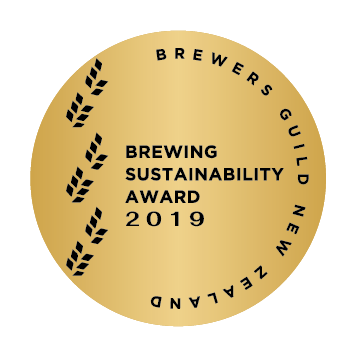
The Sawmill approach to Sustainability.
At Sawmill our sustainability efforts are focused on a collaboration with B Lab. Through B Lab we measure all our initiatives because external certification gives confidence to consumers and to us that what we are doing is measurably making a difference. Greenwashing is a real risk to everyone's sustainability efforts and we believe verification and measuring change is critical for the confidence of consumers.
We operate right at the reality end of sustainability. We make a difference and we do it in a way we hope is most easily replicable by other companies especially manufacturers and those in the beer industry. We operate this way not as a strategic marketing advantage but in order to have a positive impact on our community and
environment and to demonstrate what can practically be done. There is a saying “We don't need a handful of people doing sustainability perfectly. We need millions of people doing it imperfectly.”
As part of our low carbon future we have been working with EECA (the Energy Efficiency and Conservation Authority), a government agency who support energy efficiency and the use of renewable energy in New Zealand. We are the pilot brewery for a project to investigate decarbonising the brewing industry. The project assesses the potential for energy and carbon reduction opportunities via efficiency, process optimisation and fuel-switching. We have recently installed one of the first carbon recapture systems in New Zealand to recover Co2 produced in fermentation for use in beer production. Read more here.
Real sustainability covers more than environmental factors and B Corp certification required us to look at our business as a whole in assessments across Governance, Workforce, Community, Customers and Environment. In order to earn B Corp certification you must meet criteria in each of these areas.
Our team is a critical part of our sustainability because we cannot change the future of brewing without protecting the safety, health, and welfare of our most vital resource. A strong team builds wealth in our community and protects the longevity of a business. It builds a strong culture and enables us to be bolder with our sustainability goals.
Environmental Action. Our environmental efforts have been independently verified because we want Sawmill consumers to know where they stand and other breweries to hopefully be inspired to pick up sometimes small practical changes that collectively would make a massive difference to our impact as an industry. There is no competitive advantage in holding information to ourselves. We face a huge challenge as a society to make our environmental impact a positive one and we want to be part of that.
The biggest natural resources a brewery uses are water and
power. This is how we handle these.
- We catch all the water available off our roof; currently around 2 million litres annually and use this in the brewery (including for brewing). This accounts for approximately 15% of the water we use. This remaining water comes from an onsite spring but catching rainwater reduces our reliance on this aquifer.
- Standard industry practice is for brewery waste water to go into the stormwater system. At Sawmill all our stormwater and waste water is treated on site and goes back on to the surrounding land as irrigation. The quality of the water is monitored and returned in the purest form available with the treatment facilities we currently have. This affects what chemicals we use and in what quantity (this is measured and reported) and is an incentive to keep this to the minimum. We are currently planning a significant expansion to this system, not only to cope with increased loading from brewery expansion, but also to bring our applied wastewater as close to source water purity as is possible.
Brewhouse Upgrade: We have upgraded our brewhouse from a direct fired, infusion mash 25hl 3 vessel brewhouse to an externally heated, 4 vessel brewhouse with separate mash/lautertun. The brewhouse will help to reduce our energy input by up to 20% due to increased
boiling efficiency and heat recovery from the kettle vapour, reduced electrical energy by up to 8% with the use of VFD pumps as opposed to direct drive pumps and reduced water usage by over 90,000L per year.
- Measuring Emissions - We have taken a more proactive position on measuring and reducing emissions in the last year, now publishing our total measured emissions on our website with a stated plan to include more information and sources in the coming 12 months (See attached). Emissions are tracked against beer production.
- Scope 3 emissions – we have worked with all our transport providers (truck + courier) to measure our emissions for the distribution of Sawmill beer and closely with Mainfreight (our primary provider) on a reduction plan which has seen specific transfers – those to the South Island – have their emissions reduced by 60% by consolidating shipments, changing time frames on deliveries and switching from road to rail.
- The hop residue is separated out of the waste water and we work with Less Waste, a local charity, and local farmers to use this residue for making compost (which in the case of Less Waste is then sold to fund waste reducing initiatives).
- We measure our total water use as well as the ratio of beer produced to wastewater, and we have set goals around this which are reported to our whole team monthly. A year ago, we averaged 6.41 litres per litre of beer produced. This has dropped to 5.12 litres per litre of beer produced. This downward trend (20% reduction) gets us closer to our goal of 4L/ per litre of beer. We are firmly in the 4-8 L range which is recognised as ‘best practice’ by the American Brewers Association benchmarking tools.
- We do not use a pasteuriser at Sawmill. Viniquip have advised this saves us 4,500 litres per hour our filling line is operating.
- We have installed a heat recovery system in our brewery which recycles water. When using the plate heat exchanger to chill our wort from boiling to ~20 degrees C, we utilise chilled water as the process water. This chilled water is heated to ~80 degrees C through this process and is 100% recovered into our hot water tank. This process saves 1.5 million litres of water annually. This system also saves 287,091Mj of energy annually - nearly 6000 kgs of LPG per year.
- We have been using solar power since 2010. In November 2025 we added another 161 solar panels to our brewery roof which makes a total of 259 panels. This generates roughly 30% or our annual power needs - enough energy to power 18 to 22 New Zealand households every week.
Waste
- All the soft plastics that come into the breweryare recycled in New Zealand with Plasback. This has reduced our waste to landfill by 85%.
- We have installed grain silos in partnership with Gladfield Malt in 2020. Using silos instead of grain sacks has saved on the use of 44,000 grain sacks to date.
- The backing of our bottle labels is collected and recycled through a program with our label provider- when deciding on a new provider for our bottle label contract, the ability to recycle the label backing was one of our key criteria. This project has so far diverted 4.2 tonne of waste from landfill.
- Annual Waste Audits to see if anything is going into landfill that shouldn’t be and also to help us reduce what is going to landfill – for example if a high proportion of our waste is latex gloves we will look for an alternative product that can be recycled or reused. This is pretty straightforward. You tip all the landfill destined waste for a defined period onto a tarpaulin and work out if it could go somewhere other than the landfill or if we can prevent it coming into the brewery in the first place. Its dirty and practical and any business can do it.
- Our waste to landfill from the Brewery has been reduced to an average of 11kgs weekly (less than the average New Zealand household waste of 25kgs weekly).
- All compostable waste from the Brewery + Smoko Room is diverted either to local farms (grain) or composted on site for use in our garden. We currently have 11 compost bins onsite.
- We promote (and incentivise through price) the refilling of glass flagons at the brewery to reduce waste and don’t offer plastic flagons.
- All polyboxes are recycled and reused by local oyster farmers.
- Two large onsite garden beds supply fresh greens and vegetables to our team.
- We focus on using NZ ingredients and source 97% of our grain from New Zealand owned Gladfield Malt, and 70% of our hops from New Zealand based Hop growers.
- All our sales vehicles are Hybrid EV’s.
- Many breweries use a finings agent PolyVinylPolyPyrilidone (PVPP) which is a plastic polymer used to remove certain polyphenols naturally present in beer. This compound is not biodegradable and is essentially a form of “microplastic”. We do not use this product.
- Clean-in-Place (CIP) chemical reuse:
Cleaning and sanitation of our production vessels requires the use of Caustic Soda solution and Peracetic Acid solution. Standard industry practice for a brewery our size is to single-use these solutions. However, we have employed a skid-mounted CIP unit that has reservoirs to receive the used solutions, keep them at temperature, then deploy them into another tank for CIP. This unit saves us hot rinsewater, cold rinsewater, and chemical per reuse.
- The walls and cladding of the Smoko Room is chemical free New Zealand beech from Cyclone Ida.
- The Smoko Room furniture, ceramics, art and lighting fixtures were designed and made locally.
Our Social responsibility. At Sawmill this goes beyond giving away beer.
- We have a long partnership with BLAKE (formerly known as the
Sir Peter Blake Trust) to support their work in fostering environmental leadership in New Zealand. Alongside fundraising we host groups of teachers and students at the Smoko Room regularly and speak about B Corp and how small businesses can contribute to positive change. In FY24 we hosted 216 students and 110 teachers.
- In 2021 we started to collect $10 from each tonne of spent grain diverted to local farmers and direct it toward supporting community initiatives – currently this money is used to pay the ongoing utilities costs of West Auckland charity Give a Kid a Blanket. Sawmill are a collection point for this charity.
- Sawmill worked closely with community groups and other local businesses in March 2023 to host a Cyclone Gabrielle fundraiser in the Smoko Room which raised $14,000.
- We support our local schools, fire brigades and regularly run fundraising events in the Smoko Room. We also offer the Smoko Room at no cost for local charities to use, for workshops, speakers and fundraising.
- Nationally, we have supported organisations including Coastguard, The Arts Foundation, Surf Lifesaving NZ, and Gumboot Friday.

